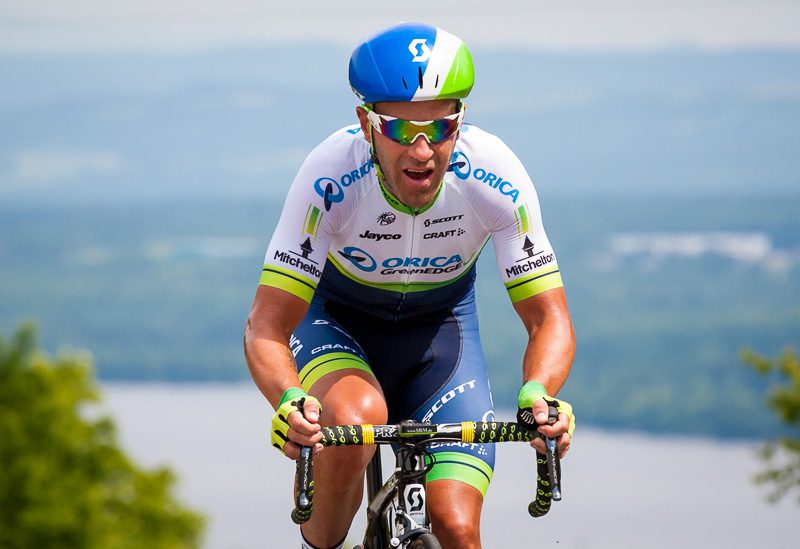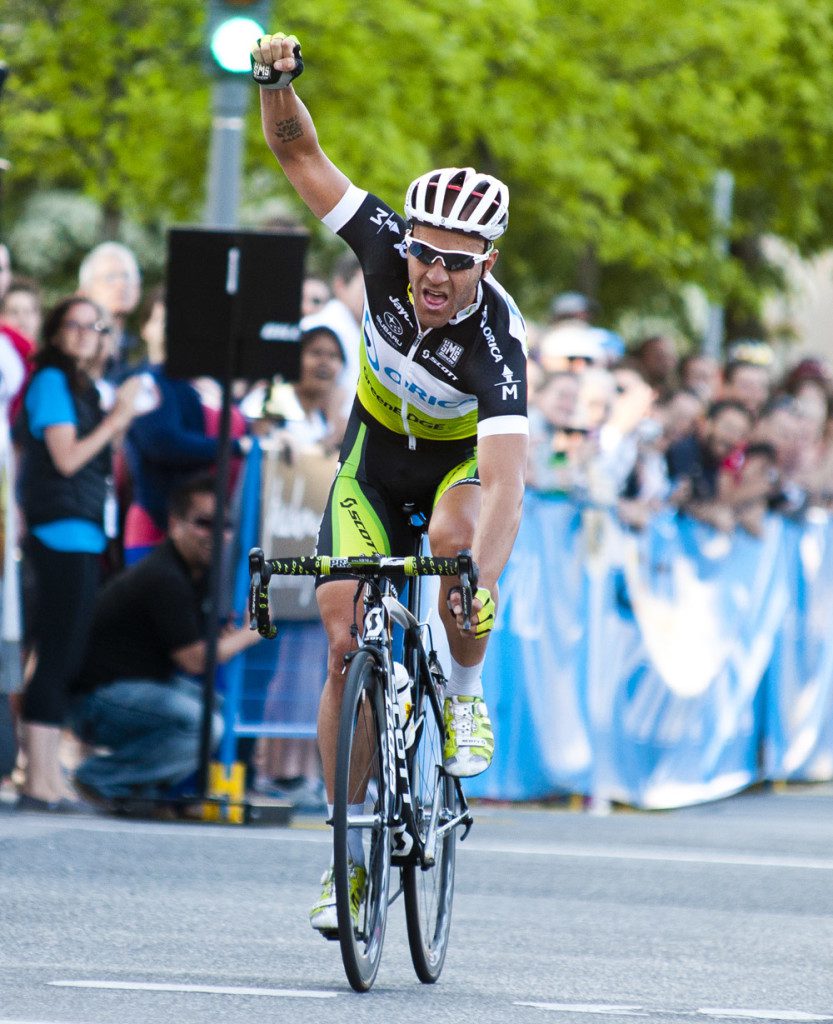For Svein Tuft, recovery and Tour de France preparation are matters of the mind—and the heart
As you might suspect of a rider with a reputation like Svein Tuft, injury typically isn't enough to keep him on the sidelines.


As you might suspect of a rider with a reputation like Svein Tuft, injury typically isn’t enough to keep him on the sidelines.
The 38-year-old cyclist has been synonymous with a spirit of against-all-odds tenacity, the legacy of which became his entry into the world of professional cycling many years later than most riders have their first race. It was an unorthodox start to his professional career. For Tuft, however, unorthodox is how he rolls.
At 18, he rode 600 miles from B.C.’s Lower Mainland to the Bella Coola Valley on a $40 bike, tethered to a homemade trailer that transported his dog. Looking to simply stretch his legs and get in the game, he’s also been known to ride transcontinental distances, sometimes from B.C. to the southern United States. “He’s somebody who has lived life according to how he wanted to live it,” said Garmin-Slipstream director Jonathan Vaughters, back when Tuft was first professionally recruited to the team in 2009—at 31 years of age. For some, 31 is too late to start racing. Tuft, however—known as “Svein the Strong” in his youth, rather appropriately—was just getting started.
Even a rider of Tuft’s legendary strength can get shaken up, though.
“I’ve been pretty lucky in my time and have never had any really bad [crashes], but those were pretty rough ones,” said Tuft, currently in Switzerland for the Tour de Suisse, in conversation with Canadian Cycling Magazine. Looking back at the Tirreno-Adriatico and Tour de Romandie accidents that took him out of commission for a while, he said,”Recovery was really good coming out of the first one, and everything was on track for the Giro, but sure enough at the first stage of the Romandie I went down pretty hard on the guard rail and hit a pole.” It was the injuries sustained at chest level, he emphasized, that were especially alarming.
“I hit the area just around my heart,” he said, recalling that last, brutal crash. “There were elevated cardiac enzymes, so that’s why I was in the hospital for a few days.” True to his reputation, though, sitting around with his feet up, doing nothing, wasn’t going to be a part of his recovery. “I went up into the high mountains—close to 3,000 m—and did a bit of altitude work. Recovery is hard when you’re hanging out at the house.”
A big part of his recovery has been in preparing for what comes next, too. With his fall at Romandie, the Giro d’Italia was suddenly off-limits—a huge setback for the dedicated iron rider. But the same outcome wasn’t going to happen with either the Tour de Suisse or the Tour de France, he was determined.
“I want to do the Tour [de France] and I knew that the only way that’s going to happen is if I stay really focused and keep my eye on what’s coming and the rigours of that race,” Tuft explained. “You know the type of level you need to be at, and I wasn’t going to let myself fall apart just because I was injured,” he said. For Tuft, mind truly does eclipse matter—especially in recovery and training.
It’s an integral part of what makes him such a strong, aggressive rider, something Tuft attributes to a Zen-like sense of mental discipline more than anything else. “I’ve always really enjoyed that aspect of bike racing: the work and pushing yourself to see where it will take you, because it all goes back to that whole mental aspect,” he said. “However you perceive an effort and however you perceive that happening to you, it’s really up to how you take it and understand it.
“That’s the greatest thing about this job: you always get to push yourself and test where you’re at.”
Tuft is confident in the outcome of that recovery. With the Tour de Suisse being a traditional precursor to the Tour de France, he expects to be heading back to the Tour, with the hope of repeating his performance in 2013 when he won the Stage 4 time trial. “It’s more than likely I’ll be doing the Tour,” Tuft said. “Just got to get through the Tour de Suisse first.” Preparing for cycling’s biggest tour is just a matter of carrying on with what he’s been doing, he said. “For me, I already raced yesterday and rode in the front all day for 120 km; there’s nothing I’m going to pull out that’s going to be any more special than that.” His post-recovery health, he said, is his No. 1 priority as he prepares. “Especially because I haven’t raced a lot since the crashes,” he said.
In the near future, Tuft says he won’t head home to defend his national championship titles, citing the tight turnaround before the Tour and the rigours of trans-Atlantic travel. In the long term, though, Tuft also has no plans of hanging up his helmet just yet. Even though he came into the world of professional cycling somewhat late, Tuft gives the impression of a man, six years into his pro career, whose taste for the race is only becoming more insatiable. To hear Svein Tuft talk about what comes next in his career, you get the impression he’ll still be wanting more in another six years—crashes and all.
“I’m going to continue,” he said, looking ahead. “I still love what I’m doing, and I feel that if you’re lucky enough to find something you love doing, and as long as you’re still adapting and learning and still liking that process, for me that’s the dream. The job can be very difficult at times, but for the most part it’s a little slice of paradise, really.”

